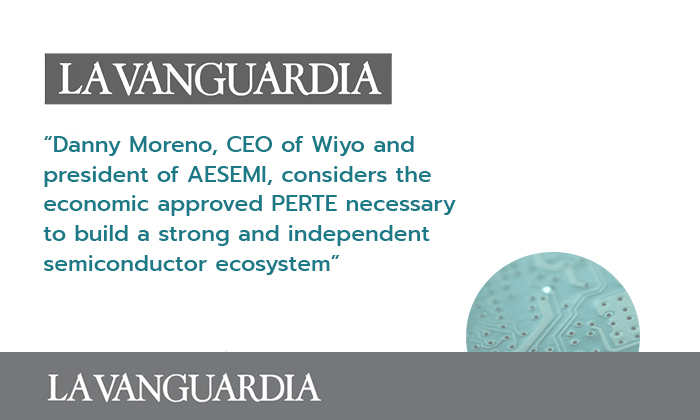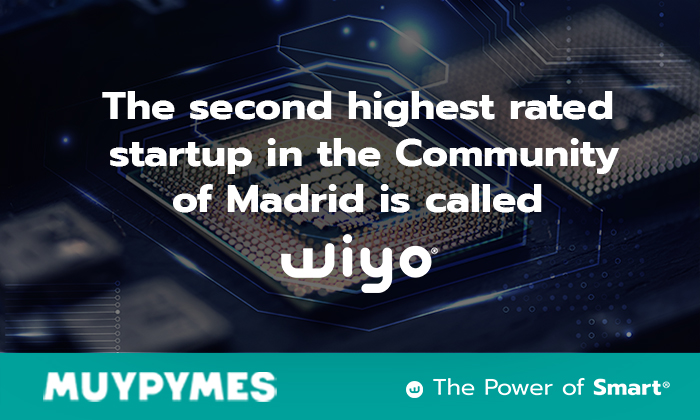It aims to recompose the chip supply chain. The project is aligned with the EU’s plan for Europe to manufacture 20% of chips by 2023.
The President of the Government, Pedro Sánchez, announced yesterday the forthcoming approval of a new strategic project for economic recovery and transformation (Perte) on microchips and semiconductors endowed with 11,000 million euros of public investment. The objective, he assured, is to place Spain at the forefront of industrial progress within the context of digital transformation. And he defended that “our country is not going to lose the technology race, quite the contrary”.
This new Perte, which is expected to be approved by the Council of Ministers in the coming weeks, is aligned with the European plan announced by the President of the Commission, Ursula von der Leyen, last February, which plans to mobilize more than 43 billion in public investment with the aim that by 2030 20% of the world’s chips will be manufactured in Europe, which will mean having to quadruple current manufacturing, which today barely reaches 10% of the market.
Most of this investment (30 billion) has already been committed by Brussels and the Member States from the Community budget and recovery funds. In addition, to this package, the Commission wants to add 11 billion to “finance technological leadership in research, design and manufacturing capabilities” and a further 2 billion from a new fund (called the “chip fund”) to support growth companies and SMEs. The European Commission’s announcement came prior to the commitment announced yesterday by Sánchez, so the Spanish Perte is likely to mean a net increase in European investment in this area.
“Semiconductors are a staple of all sectors and take on a global geostrategic importance in a context of digital transformation,” Sánchez stressed during his speech at the second edition of the Wake Up Spain! forum, a symposium organized by El Español, Invertia and D+I, where he made the announcement.
Technology career
Sánchez defended that Spain is not going to lose the race for the most advanced technology, but quite the opposite: “The government wants our country to be at the forefront of industrial and technological progress,” he insisted. And in that objective “this Perte is a big bet”. “It is ambitious and bold” as it seeks to attract investment in the semiconductor industry and related technologies, which will be key to achieving the strategic autonomy longed for at the European level.
Neither Sanchez nor the Ministry of Economy, who will lead the Perte and manage it through the Secretary of State for Telecommunications and Digital Infrastructure, offered further details on the project yesterday. It is not known if the Ministry of Industry, which has traditionally dealt with projects linked to this sector, will have any role, although it included in the Perte of the electric and connected vehicle the forecast of investments in chips as another component.
It is also not known whether the government has closed any agreement with a chip manufacturer to set up a factory in Spain. And it remains to be clarified where the 11,000 million will come from, although they will come from the European Recovery Plan, it remains to be seen whether they will come from the items that will be channeled as non-repayable funds or loans.
The Economy Department did warn of the importance that the Government wants to give to this strategic project, “since of all the Perte announced (and approved) it is the one that has the most public investment”.
Within the Recovery, Transformation and Resilience Plan, the Executive has already approved nine strategic projects: electric vehicles, health, renewable energies, agri-food, new language economy, circular economy, naval industry, aerospace and digitalization of water, with which it expects to mobilize 56,000 million, 19,000 of them from European funds. In addition, it has announced two others, the aforementioned microchips and the social economy of care.
Sources in the sector assure CincoDías that taking into account the volume of investment announced by the government in this area, “it is very likely that we are talking about the objective of producing 25-30 nanometer chips in Spain for the production of cars, household appliances and consumer economy products”. Apparently, the Executive has already been in contact with several manufacturers, some of them specialized in this size of chips, which requires less expensive factories.
In the sector, it is not seen as possible that Spain could opt for a factory with cutting-edge technology of 2 or 5 nanometers, which imply investments of around 20,000 million euros. And it is taken for granted that neither TSCM nor Samsung, the leaders in manufacturing the latest generation chips, will be involved in the project, since neither of the two has included Europe in its expansion plans so far.
In Spain, there was disappointment when Intel announced in March that it would invest more than 33 billion euros in the EU, but did not specify any investment in Europe.
Solo su intención de crear laboratorios conjuntos con el Centro de Supercomputación de Barcelona (BSC) centrados en computación avanzada. Por contra, comprometió 17.000 millones para levantar en Alemania una megafábrica que producirá chips avanzados de 2 nanómetros, otros 12.000 millones para ampliar su planta en Irlanda y 4.500 millones para instalaciones de back-end en Italia.
Cadena de suministro
Danny Moreno, CEO of Wiyo y and president of Spanish Semiconductor Industry Association (Aesemi), said yesterday that they are “very pleased with the Perte’s announcement, which seeks to boost Spain’s strategic semiconductor industry.” “We support the announcement,” he assured, while indicating that they have raised more than 50 proposals to the March 29 public consultation of the Ministry of Industry, which has made two expressions of interest on the chip industry.
Moreno believes that the government’s aspiration is to recompose the chip supply chain, and defended that with this Perte “the whole ecosystem of the semiconductor industry should be strengthened so that it in turn feeds all the industries in Spain, so that they can better compete in a hyperconnected world”. Thus, the sector is committed to the government promoting activities such as the design, assembly and encapsulation of chips. Although the executive showed his support for the government, he believes that “more should have been done” and that it should have been done earlier, and he is convinced that this announced investment is the first of many more to come.




